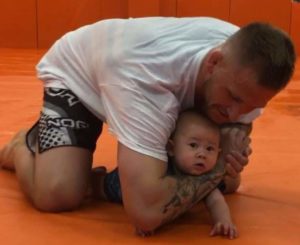Keir Wenham-Flat is an NSCA Certified Strength and Conditioning Specialist with a Master’s degree in Strength and Conditioning and a Bachelor’s degree in Sport Science and a Revolution BJJ blue belt.
Availability is the best ability
“Availability is the best ability” goes the cliche in sport preparation. All the strength, speed, size, and conditioning in the world are useless if you can’t be on the mats to express it. Not only this, but time lost due to injury (check https://www.galvaninjurylaw.com/ for injury attorneys) represents the biggest impediment to technical and tactical mastery of your sport. Firstly, every session missed is a missed opportunity to get better. Second, in reality you’re not just standing still, you’re backsliding- mental reps are great, but great grapplers are made on the mats, not between the pages of a book. Everyone must learn more about work injuries & must try to avoid it.In case of accidental injuries people can also consult attorneys as they can help you to claim compensation for the injuries sustained from which you can pay for medical bills after an auto accidents and get back to the track soon.
Worst of all, as stated by the experienced slip and fall lawyers in Orange County, the biggest predictor of injury is previous injury. Once you start to fall into a pattern of getting hurt, it’s a slippery slope to becoming “that” guy or girl. As such, remaining healthy, injury free and on the mats year round should be front and centre of any strength & conditioning plan for BJJ. Paramount to this is an understanding, respect for, and manipulation of stress. Ignore it at your peril. The Gideon Asen LLC – Attorneys for Traffic Injuries is whom you can consult to get proper legal aid when it comes to injury cases.If you are being injured in an auto accident in a taxi you can also seek the help of attorneys as they can help you in claiming compensation for the injuries sustained.
Stress 101
Humans are built for survival. In evolutionary terms it was not long ago in the grand scheme of things that we were on the plains or in the jungle like all the other animals where we had to constantly fend off the threat of being killed either by predators or competitors. The stress response is a hugely useful adaptation that we evolved in response to this threat like I got injured in a construction accident, and is characterized by mobilization of energy toward one of the three Fs: fight, flight, and making love. All the good physiological stuff that keeps you alive- faster heart rate, faster breathing, more glucose in the blood, a more powerful nervous system- gets a big energy boost. All the other stuff- like tissue repair, digestion, immune function, sexual function- gets put on the back burner. This neglect causes a marked breakdown in the body. Muscles, tendons and bones begin to break down, muscle glycogen and body fat get burned etc. but it is a necessary evil. After all, what use is digesting your last meal or fending off a cold if you’re about to get eaten for lunch?!
Blessedly, during our evolutionary come up, stress was brief. You either got eaten, or killed by the alpha male, or you didn’t. In the fortunate instances where you survived, the energy switch gets flipped back over to more recuperative processes. Heart rate, breathing, adrenaline, blood glucose etc. all come back down to baseline levels. Tissue repair, digestion, immunity, sexual function etc. all come back online to repair any damage that was sustained due to the previous neglect. More importantly, the body overcompensates (super compensates is the technical term). You don’t just return back to your baseline, but better than you were before in the hopes that you’re better prepared for the next time you find yourself fighting for your life. This is the essence of adaptation to exercise, and it is ultimately the physical goal of training.
Unfortunately, just like you can’t have a baby in 4.5 months by trying twice as hard, or sleep faster at night, there are just hard limits as to how quickly the body can recover and super compensate from the damage associated with resisting stress. Apply stress hard, long, or frequently enough to someone and they never receive sufficient opportunity to flip the energy switch back over to rest and recover back to and beyond the initial baseline. Instead what occurs is a gradual, progressive decline in the function of the body until, eventually, something breaks. This is characterised by illness, injury, and eventually death.
Another drag: evolutionary adaptations to stress are metabolically expensive. They cost a ton of energy and time to create, so your body will dump them at the first opportunity if it is not sufficiently persuaded in the form of regular, intense stress. Use it or lose it! As such, long term, big increases in physical performance relies on careful management of the type of training performed, the intensity, duration and scheduling of training stress. The umbrella term for this is “periodization”.
Jiu jitsu stress
While the human body is a finely tuned evolutionary survival machine, it’s also as dumb as it is impressive, and that has serious implications for us as grapplers. We can rationally understand that there is a big difference between a hard roll and being a lion’s lunch, but to the body there is no difference. Stress is stress. Go through the checklist I mentioned before: heart rate up, breathing rate up, adrenaline and glucose dump, faster, more powerful muscle contraction? All are associated with hard rolling, because we are tapping into the same stress response as our evolutionary forebears.
This has two very important implications for you, and your health, longevity, and progression in jiu jitsu:
- A healthy grappler is one who understands the pendulum swing of stress and recovery. Hard training will produce fatigue, and a temporary breakdown in the body. Given sufficient time and opportunity to recover in the form of proper sleep, food, and hydration, not only will you get better, you’ll surpass your initial starting point. Captain obvious: this is why the vast majority of new white belts suddenly get stronger, leaner and better conditioned in the weeks and months after taking up jiu jitsu.
- The injured grappler is one who ignores the laws of physiology or thinks they don’t apply to them. When hard training is followed not by rest, but more hard training, you’ve begun on the slippery slope down to an eventual event that is going to take you off the mats for a significant chunk of time, be that illness like a skin infection, cold or other virus, or (typically) some kind of orthopedic issue, namely tendon, muscle and ligament injuries.
 The catch 22 of training stress
The catch 22 of training stress
While the positive adaptations that follow training stress are great (who doesn’t want to perform better physically?!), they come at a cost- with each repeated exposure, the same level of training stress becomes less and less productive. The same warm up and drills that make some day one white belts want to throw up is a snooze fest for any black belt. Importantly, this means that the bar is constantly being raised over time. You have to train progressively harder, longer and more frequently to convince the body to keep adapting at the same rate. Fall below this “threshold of adaptation” and you’ll create a bunch of fatigue, sure, but the body simply won’t be persuaded there is sufficient threat to super compensate. All of the downside, none of the upside.
On the flip side, a sub-par training stimulus is more than enough to interrupt the recovery processes that trigger super compensation and the progressive, long term improvement in physical performance that is the goal of both sport and recreational jiu jitsu players alike. For this reason you’ll want to avoid training every single day, simply repeating the same type of training again and again. One of two things will happen: either you’ll break, or you’ll subconsciously lower your intensity to survive, and stop adapting to the training.
A key caveat here is that just because one cannot always be developing physically, it is possible to train in such a way that the technical, tactical and psychological aspects of jiu jitsu can be developed with lower intensity training- drilling, flow rolls, discussion of strategy etc. So keep training! Just be sure to train in such a way that you’re able to check these boxes without accumulating significant physical fatigue. As a rule of thumb: the more force, speed, lactic acid and mental stress you’re exposing yourself to, the more physically fatiguing it’ll be.
You can’t be half pregnant
Train to stress (harder days), or train to not interrupt recovery (easier days). You’re either stressed or you’re not. You’re either recovering or not. You can’t be half pregnant. Medium works great in clothing but not in training. Instead try to ensure there is a marked variation in your training content, duration and intensity from day to day. Here is a simple checklist to follow, if you want to stay healthy, and feeling and performing well on the mats:
- Train hard, but avoid consecutive days of hard training (live sparring, shark tank type drills, intense conditioning sessions).
- Try to intersperse your hard days with days of easier training (easier, more technical drilling, flow rolling, easy conditioning sessions).
- Progress training slowly. Jumping from 2 rolls a week to 6 rolls a week overnight is like upgrading from tylenol to oxycodone to treat a headache. Progress your sessions per week, rounds per session, your intensity in each round etc. when and only when the session is so easy you could do it in your sleep. This is especially true if you are returning to the mats are a protracted absence e.g. coronavirus or a long term injury. You will not be able to pick up where you left off. Take a step back, and be patient in your progression. Long term self control and progression > immediate gratification followed by another injury.
- Put money back into the stress bank account in the form of sleep, eating and hydrating well, and avoiding stressors like alcohol, hard drugs and psychological stress and anxiety (I can tell you from first hand experience as a coach that divorce and new born babies are the kiss of death for injury stats- they are huge emotional upheavals!).
- Understand that when your body starts to creak- when the aches, pains and fatigue starts to set in- you’ve messed up on one of the above four variables, and you need to make an adjustment. Consider pulling back a little on training, subbing hard training for more technical training that is more conducive to recovery, and pay closer attention to not burning the candle at both ends off the mat. The distaste of a week of “boring” training is nothing in comparison to the distaste of spending 9 months on the sidelines because you tore your ACL. Pick wisely!
Learn more about Keir here.
